Born in 1989 in the Free State province, South Africa, Sannah Mokone studied at the University of the Free State before going to Oxford to read for an MSc in African studies. After Oxford, she returned to South Africa and worked for the IMBIZO Project which empowers rural communities to be self-reliant. Mokone went on to work in entrepreneurship, communications and management consultancy. She is a strong advocate for the power of the Rhodes community and has served as a member of the Rhodes Trust Global Alumni Advisory Board. Alongside her career, Mokone continues to mentor and advise others, particularly in the field of writing and poetry. This narrative is excerpted from an interview with the Rhodes Trust on 17 July 2024.
Matshabello Sannah Mokone
South Africa-at-Large & Jesus 2011
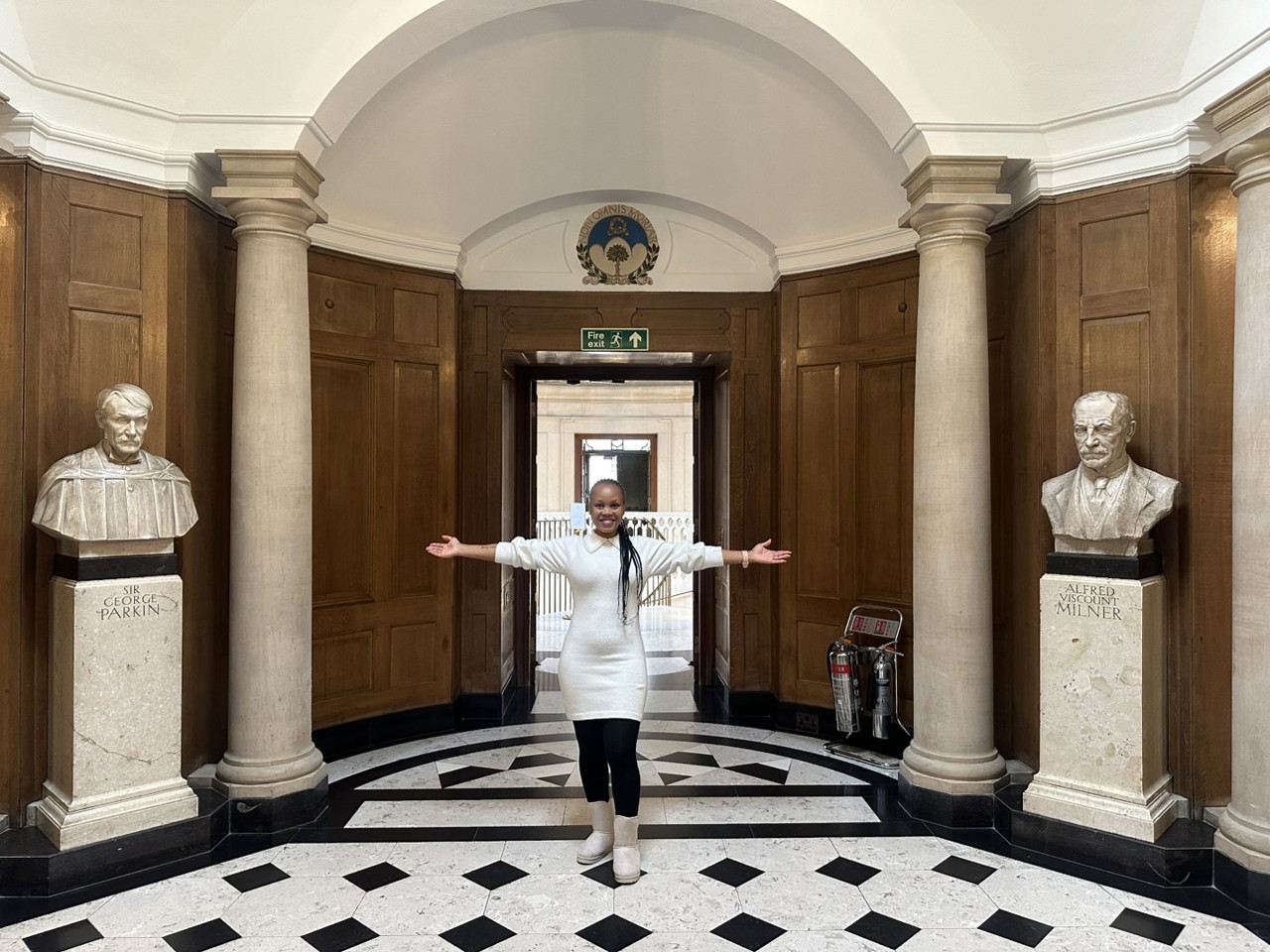
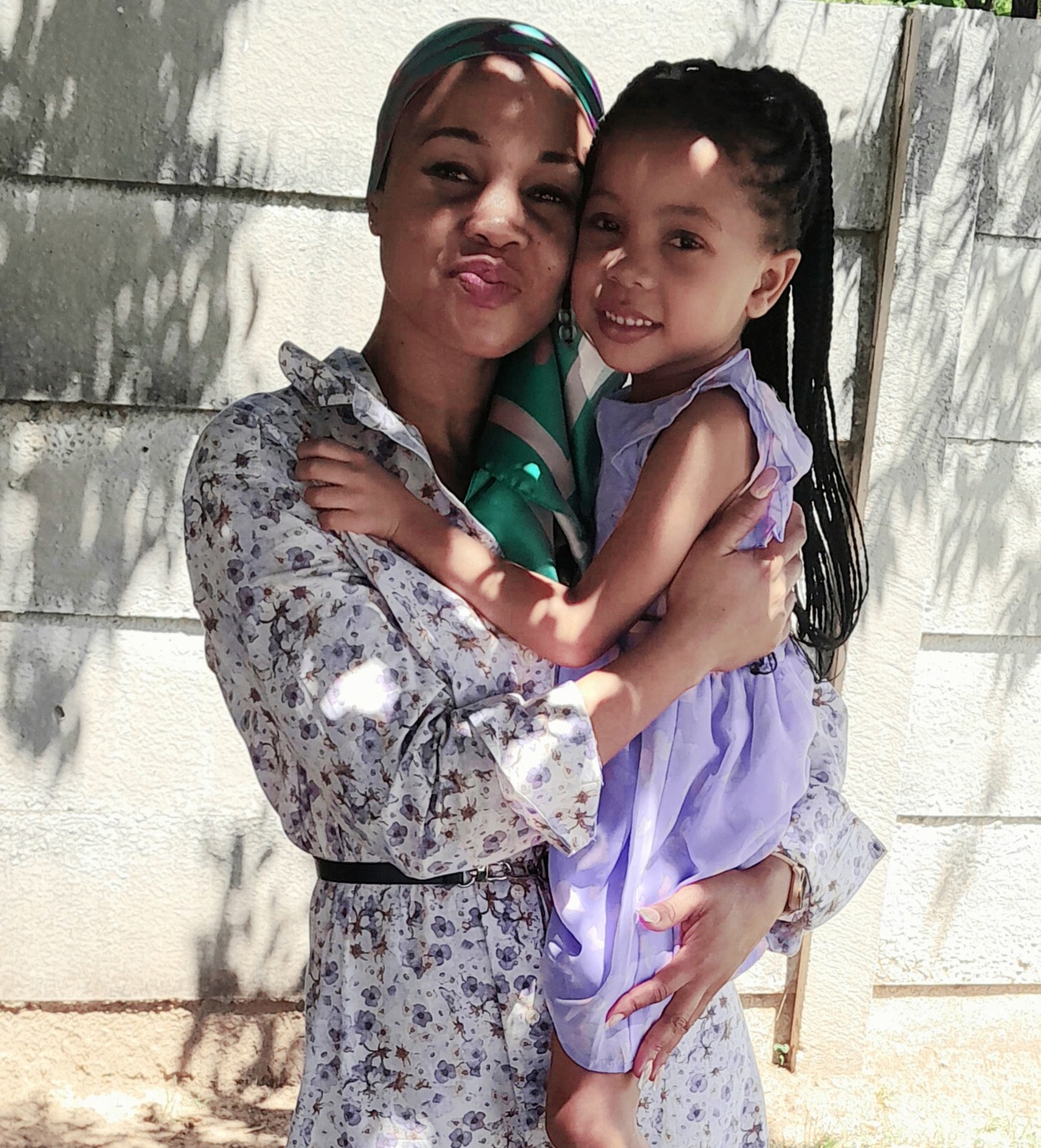
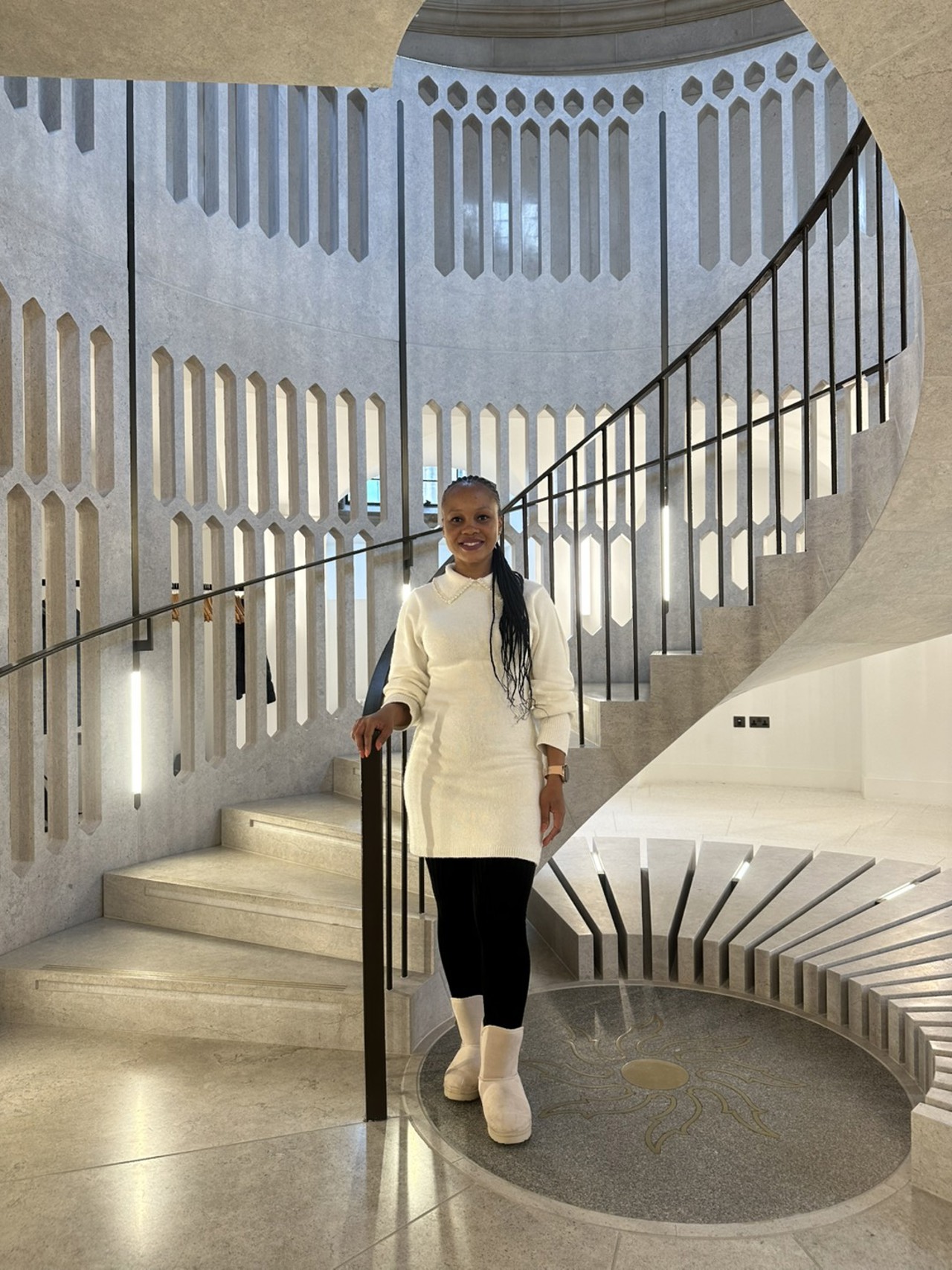
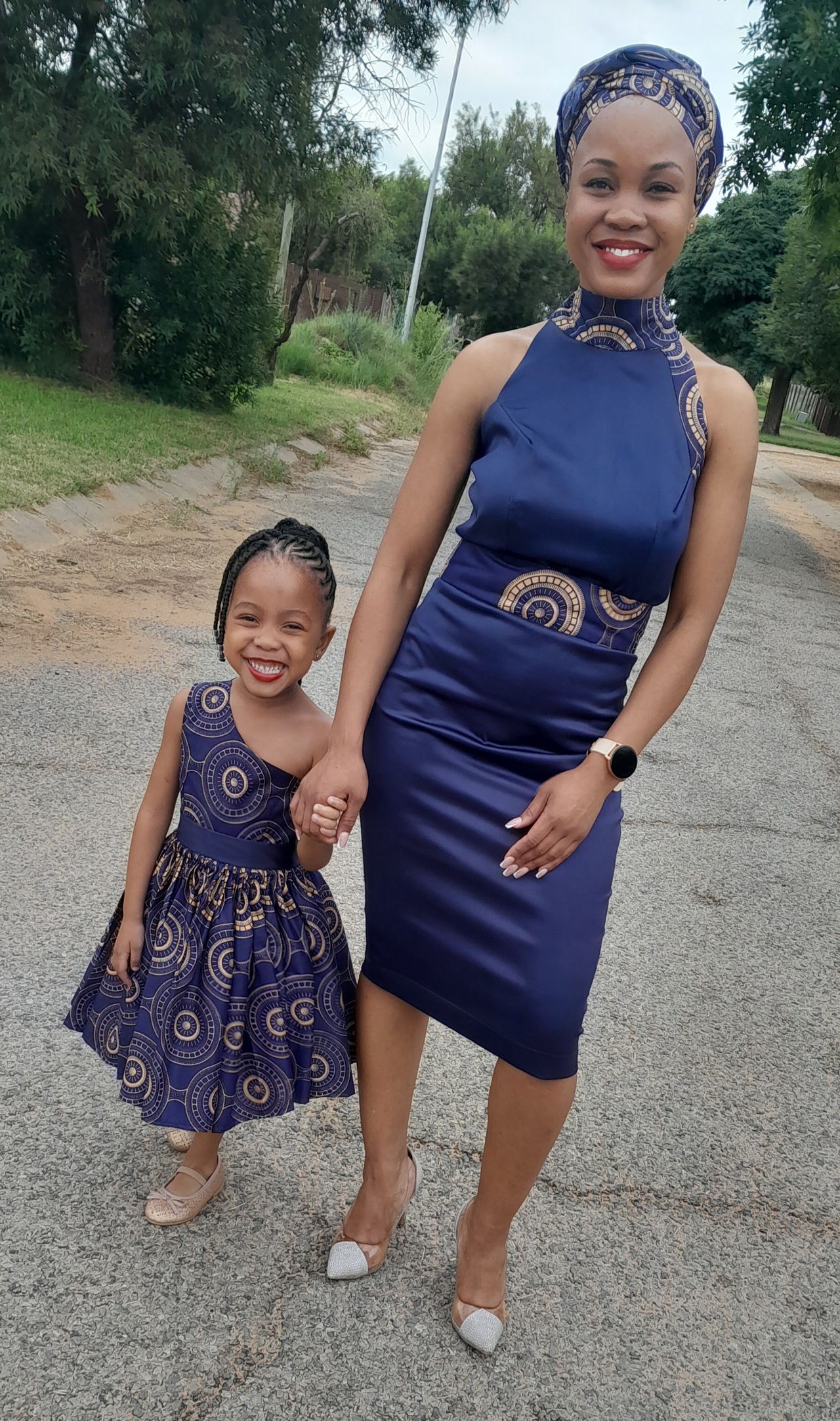
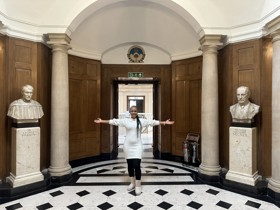
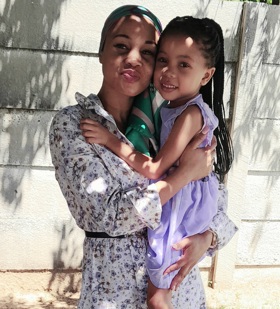
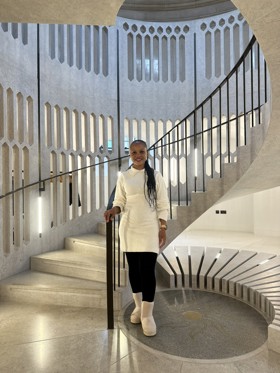
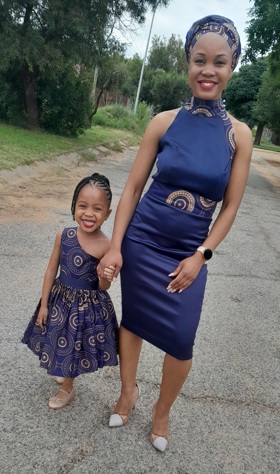
‘It moved me and helped me engage with the world’
My family come from Nyakallong Allanridge, which is a township, but my ancestry is located in Lesotho, where my father’s family originated. I come from a royal family, and somewhere along the line, there was a dispute and my father’s family had to flee into South Africa. Family life for me was very supportive and my community, from the Basotho ethnic group in South Africa, was very close-knit, very cultural, very traditional. I’d say it is a group of people who really have your back and tend to circle around you and provide support if you are having a struggle.
Growing up, I always enjoyed writing. I remember I loved jotting down my feelings, my thoughts and my dreams. When I was around ten years of age, I wrote down that I wanted, one day, to study in the United Kingdom. I just had this inkling that it was somewhere I was meant to be. When I got to high school, our English teacher picked a number of us to read aloud. Afterwards, she told me that I really knew how to read well, how to pick out inflection points. And then, a different English teacher later on in high school took me aside and told me I had the potential to get an A. Those things instilled such confidence in me and bolstered my faith in myself. As supportive as my community was, I don’t feel like they knew how to develop my specific potentialities. And for someone coming where I come from, with South Africa’s history of apartheid, to have a teacher of a different hue believe in me and not be afraid to engage with me, it just moved me and helped me engage with the world.
On applying for the Rhodes Scholarship
When I was doing my first year at the University of the Free State, I was going to class one day and there was this pillar with a poster on it. It had this huge ‘R’ shaped in the face of an eagle, and I just stopped. Something pulled me to it. I’m a believer in signs, so I went over and read the poster, and it talked about intellectual capacity and leadership and the potential to study at Oxford. I read it and read it and at first, I thought, ‘This is not a possibility for me. I could never qualify.’ But then I thought to myself, ‘One day, I don’t know how, but I want to apply for the Scholarship.’
So, my trajectory became clear. I realised that in order to get to Oxford, I needed a certain level of academic proficiency and mastery. That was one side. But then, they were saying, ‘Don’t be a mere bookworm.’ I thought, ‘I’m an introvert. How am I supposed to be this sociable person?’ That was an opportunity for me, to start working on my personal development. I began joining groups and clubs and started to come out of my shell. I learned how to describe myself beyond just books and writing, to actually speak and to know that I have an opinion and that it matters.
I wasn’t able to apply until my honours year, and then I sat down to write the application and absolutely poured my heart into the personal statement. I didn’t have anyone’s help, because I don’t think anyone really knew about this opportunity on campus. So, I went through the journey by myself, but it was a beautiful journey. The questions were specific, and there was the opportunity to grow and develop personally.
‘The friendships that I made were so formative’
Oxford may have been a complete culture shock, but it was also just absolutely lovely: the buildings, the trees, the hustle and bustle of people going about. My first day there, when I had just got to my room in Jesus College, I went back down to the porters’ lodge and I saw a woman struggling with her bags. I offered to help, and I followed her up to her room, only to find out that she was my neighbour. From that day on, we were pretty much inseparable. She came from Hong Kong, and she was a Buddhist. I’m a Christian, so we were from different backgrounds and from different faiths, but that didn’t matter. So, that was unexpected, and also beautiful and amazing.
The friendships that I made, in my college, with other Rhodes Scholars and with my course mates, were so formative. If anything, one of my greatest achievements was to see how I could live outside of where I had come from and thrive, emotionally and psychologically. I saw myself in others and I realised that even if we’re after different things, we’re all the same. The whole point of us being Scholars is to become better versions of ourselves so that we can be of greater benefit to the world we were born into and the communities we come from.
‘For me, it’s about people’
I had this very clear idea that after Oxford, I would start off in consulting and then go into entrepreneurship. But I’ve learned that when we make plans, God laughs. I’ve had a long journey with mental health, and I am one of those Rhodes Scholars who wasn’t able to graduate from Oxford. I had so many plans, but I had to surrender to God’s plans for my life and I’ve had to learn how to work with the flow of my life. It’s been a long journey, and I’ve also learned how to celebrate the successes of others along the way. I know now that not having a qualification from Oxford doesn’t make me any less of a Rhodes Scholar, and that the panel who selected me selected me for a reason.
So, picking myself up from that was absolutely not easy. But I had a lot of support from Rhodes Scholars, who would say things to me like, ‘Girl, do you know that Bill Clinton (Arkansas & University 1968) didn’t get his qualification?’ For me, the Rhodes community has been loving and supportive, like a family, and it’s really held me. I was able to come back into the community and try to contribute meaningfully in a way that didn’t feel like I was not being authentic, just because I didn’t graduate.
I’ve been through so much change. I started my career as an intern executive assistant, very much engaging with people and rural communities. I moved into administrative work in an academic environment and I’ve worked across entrepreneurial and educational roles and in communications and management consultancy. From the very beginning, for me, it has always been about people: working with them, engaging with them and influencing them and being influenced by them. I can be in the office and deal with administrative things and that’s fine, but I want to be in a place where I engage with people and learn from them and impact them. Today, there are two things that inspire and motivate me: one is my faith in God; the other is my beautiful seven-year-old daughter. Both of those things give me hope for a better tomorrow, both for myself and for the world. They just create such possibility, and I love it.
‘Focus on that voice that says you can do it’
I know that the Scholarships have come under attack in recent years in terms of South Africa and Africa, but for me, I want to thank everyone in the Rhodes community for this opportunity. I don’t think people know what this thing does for people who come from where I come from. Not only is it a huge honour to be selected as a Scholar, but it’s also a liberating kind of burden. It creates an impetus and it pushes you to become better, for yourself and for the benefit of other people. It creates this beautiful cycle.
I am so inspired by this next generation of Rhodes Scholars. To what they already know, I would just add that they should be themselves. We can only really achieve and have the kind of impacts that we have if we’re true to our own voice. Regardless of religion or background or ethnicity, that still small voice within all of us is there. So, just follow that. Know that you are worthy, that you matter, and that you are absolutely, fully capable. Then, just let the anxieties about possibly not being good enough fall away and dissipate. Focus on your work and focus on that voice that says you can do it.
